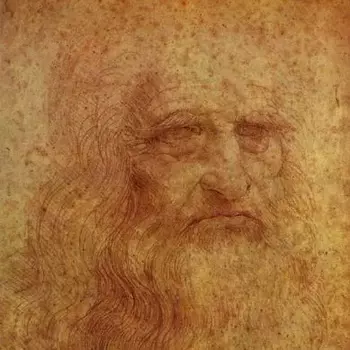Letter from Leonardo da Vinci to Ludovico Sforza
Leonardo's motivation
Leonardo wrote this letter in 1482 at the age of 30. He had lived his whole life around and in Florence until then. His apprenticeship with Master Andre del Verrochchio was complete and he had now already begun two painting commissions as a freelance painter, "Saint Jerome" and the "Adoration of the Magi". The high competition from other painters in Florence may have prompted him to apply for the court of the Prince of Milan, Ludovico Sforza (called "Il Moro", the Black or the Moor).
Certainly Leonardo was aware that there he would be expected to make an equestrian statue for the Duke, for which the Prince's father, Francesco Sforza, had already sought capable artists in vain.
In addition, Ludovico Sforza was known for his love of war.
Success of the letter
It was these two aspects, the desire for war on the one hand and the desire for a monumental equestrian statue on the other, that Leonardo was aiming at with this letter. His attempt was not initially crowned with success. The duke did not engage him immediately. Leonardo nevertheless moved to Milan shortly afterwards and worked there as an independent painter for a few more years before entering the Duke's service from 1487 at the latest. He was to serve him for at least 12 years until his expulsion by the French. Unfortunately, it is no longer possible to say exactly when he was engaged. The sources on this are very thin. The extent to which this letter impressed the duke is unfortunately also not known. However, it must have seemed to him like the application of an engineer in the tradition of Archimedes, not that of a court artist.
The original text of the letter
German Translation by Dr Hermann Grothe, 1874
Monseigneur,
Convinced that the pretenses of all those who call themselves masters in the art of inventing implements of war, in reality nothing useful or new is accomplished that is not already common, I hasten at present, without wishing to harm anyone, to unveil my secrets to Your Glory and, if it pleases you, to bring them to fruition; for I dare to hope that all the things I submit in this short letter will achieve the desired result.
1. know how to construct very light bridges, which can be easily transported from one place to another, and with the help of which it often becomes possible to pursue the enemy and put him to flight. The same are very safe and protected against fire, and resistant in water. They are easily broken open and demolished. I have also found a means to destroy and set fire to the enemy's bridges.
2. I have found a means to drain the waters in a siege, to make drop bridges and a number of instruments for such occasion.
3. If the height of the walls or the strength of the position of a place does not allow to approach in a siege with the cannons, I have found a means to ruin any tower or other fortification as soon as it is not built on rocks.
4. I also know how to manufacture a kind of bombarde, very light and convenient to transport, which shoots inflammable substances to spread terror among the enemy with the help of a great smoke, causing them damage and disorder.
5. furthermore, a method of digging underground passages without making noise in order to get into a ditch or a river bank.
6. powerful wagons, open, defensive and offensive, equipped with artillery, penetrate the center of the enemy; no mass of weapons there is to break them, and close behind them can follow foot soldiers without damage and obstacle.
7. I can also cast bombs, if necessary, mortars and field guns in beautiful and useful shape and for ordinary use.
8. where the bombs cannot be used, I make other guns of wonderful effect and strong use. Depending on the need, I will vary the offensive weapon to infinity.
When the fortunes of a naval battle are threatened, I will have in readiness a series of weapons and instruments for attack and defense; also ships that can withstand the fire of the greatest artillery, and powders and types of fire.
10. in times of peace, it will be useful to cultivate architecture for general benefit, buildings for private and public, and to carry the waters from place to place. I also deal with sculptures in marble, in bronze and in earth; likewise I make paintings, anything you want. I would also be able to work on a statue of an equestrian in bronze, to be erected for immortal glory and eternal honor, thus also for the happy memory of Your Glory Father and the Princely House of Sforza. If some of these things of which I have spoken should seem impossible and impracticable, I offer myself to carry them out in your park or in a place where Your Excellency wishes, - with which I humbly commend myself as much as possible.
- Leonardo da Vinci

![[Translate to english:] [Translate to english:]](/fileadmin/_processed_/8/b/csm_leonardo-alle-gemaelde_2dc4b01ef6.webp.pagespeed.ce.ohfmgl8OfF.webp)
![[Translate to english:] [Translate to english:]](/fileadmin/_processed_/1/2/csm_cavallo-leonardo_bf668e6f21.webp.pagespeed.ce.ZaoNyB4ZGh.webp)
![[Translate to english:] [Translate to english:]](/fileadmin/_processed_/1/2/csm_war-leonardo-da-vinci-schwul_194272ff8d.webp.pagespeed.ce.IG-OHSWppt.webp)